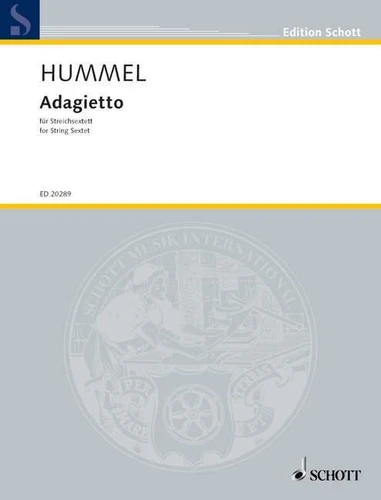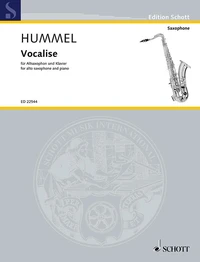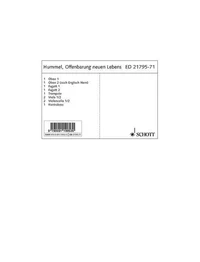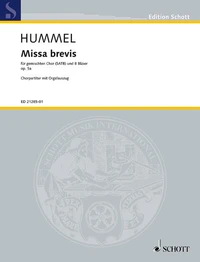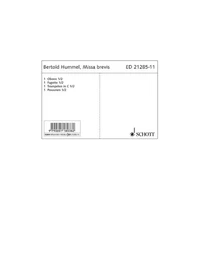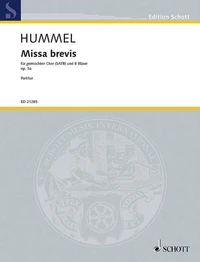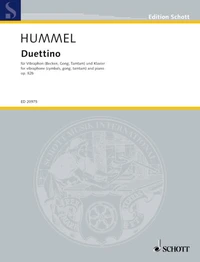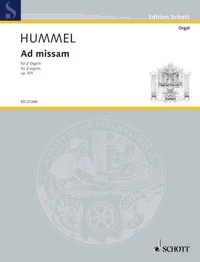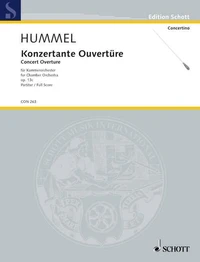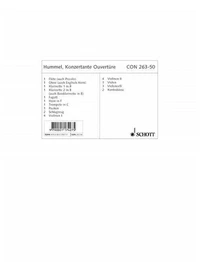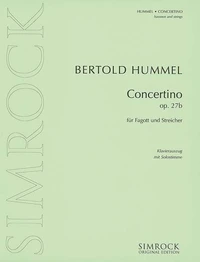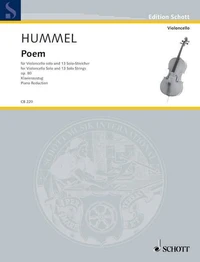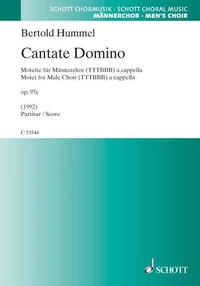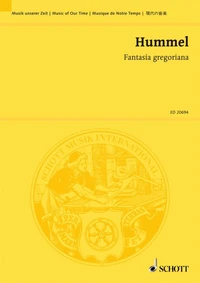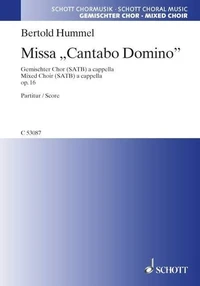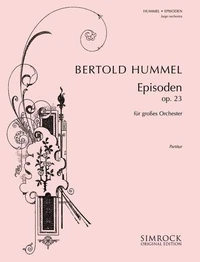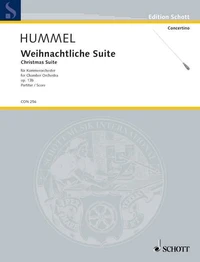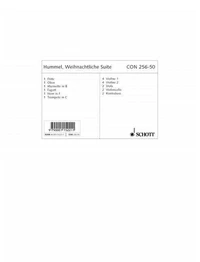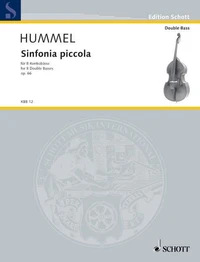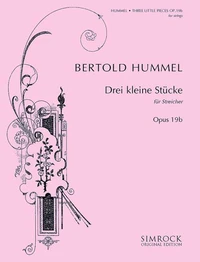Edition Schott
Adagietto. op. 75d. string sextet. Partition et parties.
Par : Formats :
- Paiement en ligne :
- Livraison à domicile ou en point Mondial Relay indisponible
- Retrait Click and Collect en magasin gratuit
- Réservation en ligne avec paiement en magasin :
- Indisponible pour réserver et payer en magasin
- Nombre de pages36
- Poids0.164 kg
- Dimensions23,1 cm × 30,3 cm × 0,0 cm
- ISBN979-0-001-14994-5
- EAN9790001149945
- Date de parution01/01/2007
- ÉditeurSchott
Résumé
Bertold Hummel worked on his Adagietto for many years. Originally conceived as an Elegy for Strings in 1965, it was transformed into an Adagietto for String Sextet in 1978 and published for the first time in 1993. Hummel undertook a further arrangement of the composition in 1999 and participated with musical friends in its first performance. In one of the scores, the title is supplemented by the term "sacrale", an indication of the religious background of this composition.
"In a time of increasing secularisation, the creative and no doubt also the reproducing artist have the task of pointing out to their contemporaries the transcendental, the inexplicable and the unprovable. The language of music - most effective perhaps in reaching across world frontiers - has an especially important role in this. Representations of suffering and horror alone cannot be the inherent constituent of a work of art.
A reference to comfort and hope is indispensable. Furthermore, life, nature, and, for the believer, knowledge of God give cause enough for praise and thanks. " This is how my father once formulated his artistic conception. A favourite adopted term of his, "musikalische Klangrede" [musical speech), appears to me to be particularly well implemented in the Adagietto. Instrumentation : string sextet op.
75d
"In a time of increasing secularisation, the creative and no doubt also the reproducing artist have the task of pointing out to their contemporaries the transcendental, the inexplicable and the unprovable. The language of music - most effective perhaps in reaching across world frontiers - has an especially important role in this. Representations of suffering and horror alone cannot be the inherent constituent of a work of art.
A reference to comfort and hope is indispensable. Furthermore, life, nature, and, for the believer, knowledge of God give cause enough for praise and thanks. " This is how my father once formulated his artistic conception. A favourite adopted term of his, "musikalische Klangrede" [musical speech), appears to me to be particularly well implemented in the Adagietto. Instrumentation : string sextet op.
75d
Bertold Hummel worked on his Adagietto for many years. Originally conceived as an Elegy for Strings in 1965, it was transformed into an Adagietto for String Sextet in 1978 and published for the first time in 1993. Hummel undertook a further arrangement of the composition in 1999 and participated with musical friends in its first performance. In one of the scores, the title is supplemented by the term "sacrale", an indication of the religious background of this composition.
"In a time of increasing secularisation, the creative and no doubt also the reproducing artist have the task of pointing out to their contemporaries the transcendental, the inexplicable and the unprovable. The language of music - most effective perhaps in reaching across world frontiers - has an especially important role in this. Representations of suffering and horror alone cannot be the inherent constituent of a work of art.
A reference to comfort and hope is indispensable. Furthermore, life, nature, and, for the believer, knowledge of God give cause enough for praise and thanks. " This is how my father once formulated his artistic conception. A favourite adopted term of his, "musikalische Klangrede" [musical speech), appears to me to be particularly well implemented in the Adagietto. Instrumentation : string sextet op.
75d
"In a time of increasing secularisation, the creative and no doubt also the reproducing artist have the task of pointing out to their contemporaries the transcendental, the inexplicable and the unprovable. The language of music - most effective perhaps in reaching across world frontiers - has an especially important role in this. Representations of suffering and horror alone cannot be the inherent constituent of a work of art.
A reference to comfort and hope is indispensable. Furthermore, life, nature, and, for the believer, knowledge of God give cause enough for praise and thanks. " This is how my father once formulated his artistic conception. A favourite adopted term of his, "musikalische Klangrede" [musical speech), appears to me to be particularly well implemented in the Adagietto. Instrumentation : string sextet op.
75d

